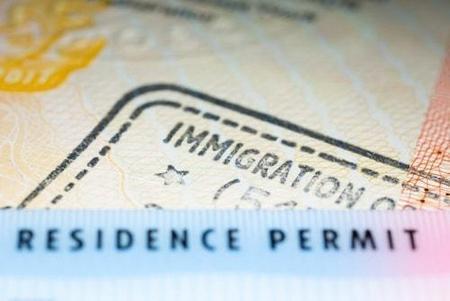What Is Credible Fear?
 When someone comes to the United States and states intent to seek asylum, they must prove that they have what immigration law refers to as ‘credible fear.’ If someone is able to show that they have a fear of returning to their home country, and that fear is legitimate or credible, they will be permitted to remain in the U.S. and apply for asylum. However, there are many misconceptions about what actually goes on at a credible fear interview. If you are in a position where you will face a credible fear interview, it is a good idea to understand what exactly will occur.
When someone comes to the United States and states intent to seek asylum, they must prove that they have what immigration law refers to as ‘credible fear.’ If someone is able to show that they have a fear of returning to their home country, and that fear is legitimate or credible, they will be permitted to remain in the U.S. and apply for asylum. However, there are many misconceptions about what actually goes on at a credible fear interview. If you are in a position where you will face a credible fear interview, it is a good idea to understand what exactly will occur.
Screening at a Port of Entry
Credible fear, as defined in U.S. immigration law, is when a “significant possibility” exists that you can establish (in an asylum hearing, before an immigration judge) that you have been persecuted or have a well-founded fear of persecution “on account of your race, religion, nationality, membership in a particular social group, or political opinion” if returned to your country. In other words, you will pass a credible fear screening if you can demonstrate a tangible and genuine fear that you would be subject to physical, mental or emotional mistreatment upon return home as a result of any of the characteristics specified in the law.
Most immigrants declare credible fear upon their first entry into the United States, though some do so at a later date (immigrants can legally declare their intent to file for asylum for up to one year after their entry into the country). To declare, the person informs a Customs & Border Patrol (CBP) officer that they have a fear of returning to their home country. At that point, they are referred for a ‘credible fear’ interview. It is important to understand that the credible fear interview is not a true ‘interview,’ but rather a brief screening. The person will almost certainly be detained by CBP during the interview. You are not entitled to representation during the interview - and in many instances, no interpreters may be present.
Going Before an IJ
Be advised that if you do not meet the credible fear standard, you may be deported via expedited removal (basically, turning you around the same way you came). While legally, you are able to ask an immigration judge to review that determination, the current administration is not always honoring that right. Expedited removal is not meant to be used on bona fide asylum seekers, but the current administration is using it on many who might have qualified to file for asylum, often for factors beyond their control, such as an inability to understand English.
If you do meet the standard, detention is becoming distressingly unavoidable for more and more asylum applicants under the current administration, and you will generally have to wait there for your case to be assigned a hearing date, given the current administration’s disinclination to allow immigrants to be released for fear of their disappearing. If it does happen to you, understand that it does at least mean that your case will go before the immigration court, although the current immigration backlog means that cases are now waiting an average of 718 days - almost two full years - before going before a judge.
Call a Chicagoland immigration Lawyer Today
While representation is not generally allowed at a credible fear interview, representation is both allowed and encouraged at all the hearings and proceedings that may follow. If you have questions about credible fear or asylum, we are here to help. The skilled Chicago-area deportation defense lawyers at Mevorah & Giglio Law Offices are experienced in these cases and we will fight for you. Call us today at 630-932-9100 for a free consultation.
 English,
English,
 Spanish,
Spanish,
 Polish,
Polish,
 Urdu
Urdu













 Make a Payment
Make a Payment



